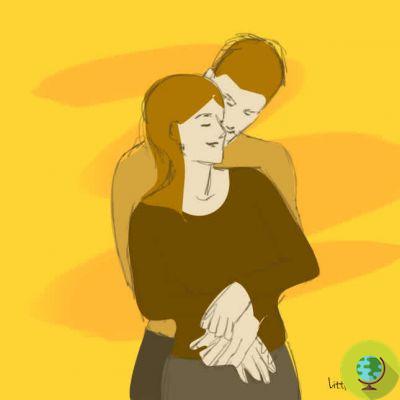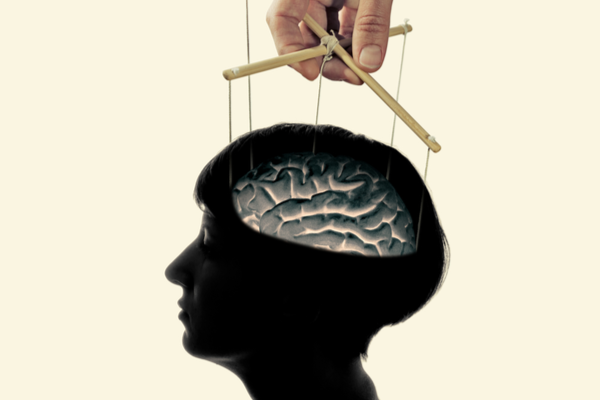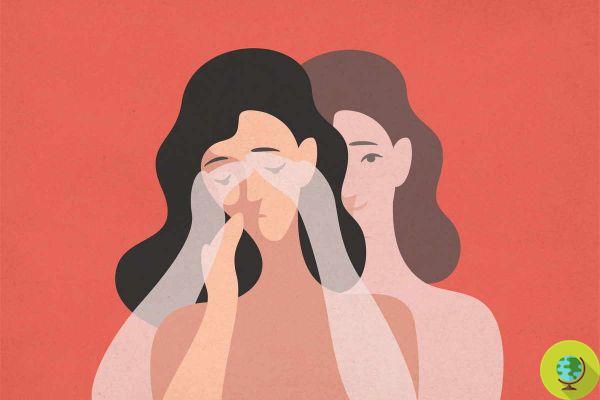
Shoulder pain, headache, nervous colitis, tachycardia, are just some of the signals that the body uses to warn us that something is wrong.
Don't store avocado like this: it's dangerousStiffness and pain in the shoulders, headaches, nervous colitis, tachycardia, are just some of the signals that the body uses to warn us that something is wrong. Although we are not always aware of it, the body speaks to us and does so more frequently than we think. When we struggle to deal with our emotional distress, it is he who takes charge of the problem and externalizes it with psychophysical symptoms. Learning to listen to him is a fundamental step towards change. But what are the 10 signs not to be ignored that indicate emotional problems? The cognitive-behavioral psychotherapist Luca Morganti Medical Area Leader in charge of the psychosomatics service of the Santagostino Medical Center explains it to us.
- From shortness of breath to insomnia. How does the body use these signals to highlight stress overload?
We can define stress as an adaptive response to the external context and the challenges it poses to us: we can respond to them with strategies already in our possession or by developing others. From a bodily perspective, increased challenges can create a overload in our body's response or an inability to interrupt our bodily response when challenges diminish or recede over time. In case of overload, common symptoms can be tachycardia, shortness of breath and muscle tension; in case of difficulty in stopping the body reaction, we have insomnia, irritability and gastrointestinal disturbances.
Often when we are highly stressed we risk entering a vicious circle: the level of constant reactivity to environmental and internal stimuli makes us more attentive and quick to find more and react further to them; moreover, once in this critical state, we reach a high level of physical and mental suffering such that we can be even more indolent towards other people. In summary, when we are under stress, the risk is to make the situation chronic by identifying each further signal as a challenge to be managed and perceived more and more without resources to face each new activity. Also in this case it is advisable to be able to "reverse the course" by integrating moments of stress that may be inevitable with some moments in which one actively undertakes to decrease one's reactivity towards a state of greater relaxation.
- Headaches can be caused by emotional problems. What types in particular?
There are different types of headaches, some of them can have a strongly emotional component: in particular we can refer to tense headaches, where the pain arises from an excessively prolonged state of muscular tension reaction. In other forms of headache, the emotional role in the etiology of the clinical condition is minor, but an emotional problem can always determine the intensity of the symptoms, such as the aura during migraine attacks.
- Stiffness, shoulder and back pain can be symptoms of emotional overload. What to do in these cases?
Body overload can be an emotional response because we must not forget that every emotion we experience has a body correlate, that is a set of physiological responses to which it is associated and which we experience during the emotion. This awareness is the first step to realize it, that is to know that tensions, pains and stiffness are not only produced by momentary or postural reactions, but can also be a consequence of prolonged and critical emotional states. A first question we can ask ourselves is: when we have a moment of relaxation, for example in the evening on the sofa or sitting behind the wheel / train, we are really relaxed also at the muscular level? Recognize your own levels of muscle tension it is an important prevention factor.
- Nervous colitis. What does it indicate?
In a nutshell, it is a chronic inflammation, often in the intestinal tract, which overloads the digestive function with pain and episodes of diarrhea or sudden discharges. In addition to a medical evaluation, it is often helpful to assist a psychological evaluation able to understand when these episodes occur, in order to see if there is a correlation between stress and eating meals or digestion at a specific time, eg. during a very quick lunch break or in the presence of people with whom you have critical relationships. Patients with a medical diagnosis of Crohn's disease are also often asked to pay attention to fluctuations in symptoms of this clinical condition, because it can vary greatly depending on the stressful conditions and therefore be more frequent in some psychologically more difficult moments, while it can almost disappear in moments of greater tranquility and relaxation.
- Tachycardia can also signal emotional problems. What does the body tell us in this case?
Increased heart rate is one natural reaction of our body in the face of activities or stimuli that are considered significant and to respond to which it is considered necessary to activate one's body to trigger a suitable reaction. Basically, therefore, it signals a psychological activation not necessarily linked to emotional problems. However, there may be conditions in which we perceive tachycardia in the face of stimuli that we do not consider seemingly significant or in conditions of specific mental events, for example some worries. In this case we are faced with a signal to be better deciphered in order to manage one's body "agitation" and the thoughts associated with it.
- Shortness of breath is a possible sign of emotional distress. Under what circumstances?
The causes for shortness of breath can be many, both related to fatigue and a critical medical condition. Even in this case, however, once the two exemplary situations just mentioned are excluded, the shortness of breath can have an emotional origin. In these cases it is often referred to as "air hunger"And it is often one of the symptoms associated with panic because in those cases one feels" obliged "to breathe as best as possible so as not to succumb to that difficult situation. Another critical circumstance signaled by shortness of breath can be excessive attention to the correct way of breathing and the search for always having a "full" and perfect breath: in this case, the hunger for air signals an excessive emphasis on the correct way of functioning of one's body that can be linked to obsessive psychological symptoms.
- Insomnia. When is it associated with emotional problems?
Insomnia most typically associated with emotional problems occurs when you are unable to fall asleep due to problems with brooding or rumination, that is, invasive and repeated cognitive processes that focus respectively on worries about future events o remorse towards past situations. Another condition for which insomnia can arise from an emotional point of view is the maintenance of a state of constant activation, or the inability to decrease one's rhythms of life and reactivity to events even once the activities of the day have ended. For both of these situations, that is both the one linked to the process and the one to the state of activation, it is important to develop strategies to manage, interrupting or at least decreasing, the mental and bodily phenomena associated with them.
- Gastrointestinal disorders. How to understand if they are due to emotional difficulties?
It is possible that each of us has a medical condition that is more prone to suffer concomitantly from a critical emotional state, for example because it is involved in some physiological, even non-pathological, medical dysfunction. Many of these conditions are related to digestion, both in the direction of constipation and in the opposite condition of bouts of diarrhea. These personal specific modalities related to one's metabolism can intensify in conditions of emotional distress: the first step to realize this is to notice any fluctuations in the gastrointestinal symptom as life situations change. For example, if digestive difficulties are more critical when we are at home or on vacation, or if they are more evident when we eat alone or in company. Then it is appropriate to evaluate what are the personal psychological characteristics that come into play in some of these life contexts and not in others.
- Difficulty in the sexual sphere. Could it indicate that something is wrong emotionally?
Another possible bodily signal linked to emotional difficulties concerns sexuality, or the onset of some difficulties in the sexual sphere in the presence of certain events or phases of life. Again, if the critical symptom, eg. erectile dysfunction or pain during sexual intercourse, occurs in different life conditions and with various partners it is possible that it is a condition that must be managed with a specialized doctor. On the other hand, if the sexual difficulty occurs in some particular moments, such as for example. the beginning of a cohabitation or with a partner who has physical or psychological characteristics that do not put us completely at ease, it is possible that the difficulty during sexual activity is a signal that requires us to pay attention to what emotions are involved in this phase of life, personally or as a couple, or with that person.
- Dizziness. When is the instability they transmit emotional?
The feeling of instability or precarious balance in the reality that surrounds us is associated with different medical conditions to the point that it can be considered a non-specific symptom, that is linked to several conditions and uniquely distinctive of a few of them. Living with situations of dizziness even in situations of absolute physical and emotional stability, such as sitting in a familiar place, can often be associated with states of generalized anxiety. Therefore, especially when we are not in situations of height or movement on means of transport, a prolonged sense of vertigo can be a sensation that signals a malaise to be deepened from a psychological point of view, in the first place to be able to understand how to manage those specific moments. from the point of view of their own psychophysiological reactions. In these cases, as well as in many of the body signals exposed so far, a biofeedback intervention may be useful, a technique that allows you to know more about the trend of your psychophysiological parameters (eg respiration, heartbeat).


























